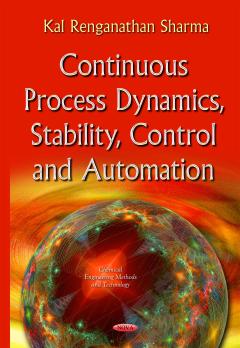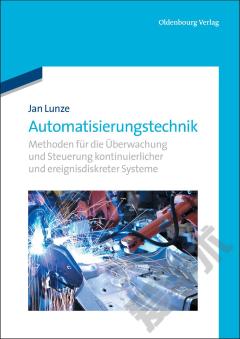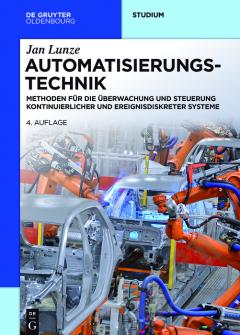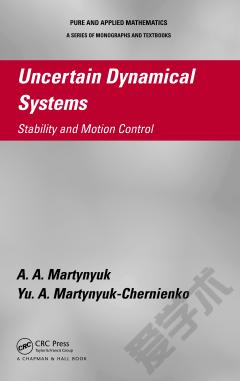Continuous Process Dynamics, Stability, Control and Automation
This is a modern first course on process control, instruments, process dynamics and stability. MS Excel spreadsheets are used in order to obtain solutions to non-linear equations when needed and closed form analytical solutions are obtained using Laplace transforms and other methods. The solutions are presented in 210 figures and the book has 1319 equations. With an industrial controls market size of about 150 billion dollars and a chemical process industry market size of three trillion dollars, the practioners can use this book to master techniques of P, proportional, PI, Proportional Integral, PD, Proportional Derivative feedback control, feedforword control, hybrid control, adaptive control, internal model control, ratio control, filtered real proportional integral derivative control, ANNs, artificial neural networks, SPC, and statistical process control. Control block diagrams are developed using MS Paint. Flavor for what is a continuous process is given using 18 process flow diagrams. Be it a feedback control of temperature in a mixing tank or a neural network design for a distillation column, the details and the big picture are both given. Pioneers who made this area possible include people such as Maxwell, Galileo, Sherwood, Levenspiel, Kalman, Laplace, Fermat, Damkholer, Newton, Fourier, Fick, Michaelis, Menten, Monod, Staudinger, Ziegler, Natta, Flory, Peclect, Bode, Nyquist, Biot, Bessel, Bernoulli (both father and son!) , Euler, Stokes, Mach, Reynolds, Prandtl, Nusselt, Weiner, Hopf, Clapeyron, Clausius, Lorenz, and Kreb, who are mentioned where their theories were used in the analysis.
{{comment.content}}








 京公网安备 11010802027623号
京公网安备 11010802027623号